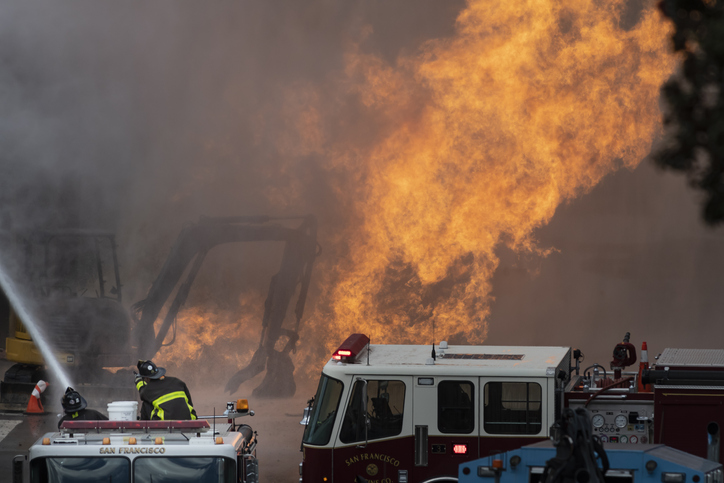
The federal agency tasked with overseeing the nation’s extensive network of oil and natural gas pipelines is finally adopting a new regulation intended to prevent catastrophic explosions and leaks.
The long-delayed rules were formulated in response to deadly explosions and massive spills that have occurred over decades in several states, including Texas, California, and New Jersey. However, critics contend they don’t go far enough and would not even have prevented many of those incidents had they been in place.
NTSB Has Pushed for Pipeline Safety Valves Since 1990s
The new rule requires companies to install emergency safety valves that can quickly and automatically shut off the flow of oil, natural gas, or other hazardous fuels when pipelines rupture. The National Transportation Safety Board has been pushing for a safety-valve requirement for all new and existing pipelines since the 1990s and urged the U.S. Department of Transportation’s Pipeline and Hazardous Materials Safety Administration (PHMSA) to expedite the rulemaking process after a 1994 gas line explosion destroyed eight buildings in Edison, New Jersey.
However, the regulator only began work on the new rule not long after a natural gas line explosion killed eight people in San Bruno, California, in 2010.
Safety Valve Requirement Only Applies to New Pipelines
Unfortunately, the industry has long resisted such a requirement due to the expense of installing shut-off valves and purported concerns that such valves could accidentally close and shut off fuel supplies.
It also played a prominent role in developing the regulation set to be adopted by the PHMSA. So perhaps it’s surprising that the rule will only apply to newly constructed pipelines, not the hundreds of thousands of miles of decades-old and potentially corroding pipelines that constitute most of the nation’s network.
That’s obviously a problem for safety advocates.
“This rule falls far short of the NTSB recommendation and will offer no additional safety to communities living near existing pipelines,” Bill Caram, executive director of The Pipeline Safety Trust, said in a statement to the Associated Press.
While industry demands that valves be more widely spaced and that so-called “low risk” pipelines be exempt from the requirement were rejected, the regulation does allow pipeline operators wide latitude to make adjustments to where valves will be placed.
Shut-Off Delays Have Contributed to Deadly Pipeline Explosions
In past disasters, human error delayed the shut-off of ruptured pipelines, leading to deaths and extensive environmental damage.
The San Bruno pipeline, for example, burned for 89 minutes before it was finally shut off. By that time, eight people were dead, and a huge swath of the suburban California neighborhood had been destroyed. According to the Associated Press, pipeline operator Pacific Gas & Electric Co. agreed as far back as 1997 that automatic valves were a more effective job of protecting public safety. However, the utility chose not to install them widely because they weren’t required.
The new rule also fails to set standards for equipment used to detect and locate leaks, a continuing problem in pipeline accidents. While pipeline operators will now be required to confirm a leak anytime they get an alarm, the regulation leaves the confirmation process entirely up to the company.
Undefeated Pipeline Explosion Lawyers: Call 1-888-603-3636 or Click Here For a Free Consultation.
Our Undefeated Pipeline Explosion Lawyers have won Billions and successfully represented clients throughout Texas, Louisiana, and across the United States who were severely burned, injured, or tragically killed in pipeline explosions and other catastrophic industrial accidents.
If you or a loved one were injured or tragically killed in a pipeline accident or explosion, our attorneys can help. Please call 1-888-603-3636 or Click Here to send us a confidential email via our “Contact Us” form.
All consultations are free, and because we only work on a contingency-fee-basis, you’ll owe nothing unless we win your case.